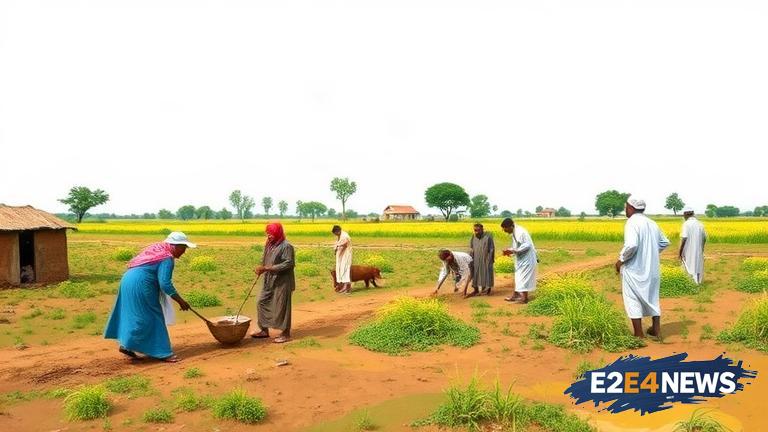A foreign funded programme recently convened a stakeholder meeting in Northern Nigeria to discuss the importance of effective agricultural budgeting in the region. The meeting brought together key stakeholders, including government officials, farmers, and agricultural experts, to share knowledge and experiences on agricultural budgeting. The programme aims to improve the agricultural sector in Northern Nigeria by providing technical assistance and capacity building to stakeholders. The meeting focused on the challenges facing the agricultural sector in the region, including limited access to credit, inadequate infrastructure, and lack of technical expertise. Stakeholders emphasized the need for a comprehensive agricultural budget that addresses the specific needs of farmers and the sector as a whole. They also highlighted the importance of involving farmers and other stakeholders in the budgeting process to ensure that their needs are taken into account. The programme’s team presented an overview of the current agricultural budgeting process in Northern Nigeria, highlighting areas of strength and weakness. They also shared best practices from other countries, including the use of digital platforms to improve budgeting and planning. Stakeholders discussed the potential benefits of adopting a more inclusive and participatory approach to agricultural budgeting, including increased transparency and accountability. They also emphasized the need for greater investment in agricultural research and development to improve productivity and competitiveness. The meeting concluded with a call to action, urging stakeholders to work together to develop a comprehensive and inclusive agricultural budget for Northern Nigeria. The foreign funded programme committed to providing ongoing support and technical assistance to stakeholders to help achieve this goal. The meeting was seen as a crucial step towards improving the agricultural sector in Northern Nigeria, which has the potential to contribute significantly to the country’s economic growth and development. The region’s agricultural sector is characterized by small-scale farming, with many farmers lacking access to modern technology and equipment. The programme’s efforts are expected to have a positive impact on the lives of thousands of farmers and their families, who rely on agriculture as their primary source of income. The meeting also highlighted the importance of addressing the root causes of poverty and inequality in the region, including limited access to education and healthcare. By improving the agricultural sector, the programme aims to contribute to the broader goal of reducing poverty and improving living standards in Northern Nigeria. The programme’s work is aligned with the United Nations’ Sustainable Development Goals, including Goal 1 (No Poverty) and Goal 2 (Zero Hunger). The meeting was attended by representatives from government ministries, departments, and agencies, as well as non-governmental organizations and private sector companies. Stakeholders praised the programme’s efforts to engage with them and involve them in the budgeting process, saying that this approach was more effective than traditional top-down approaches. The programme’s team is expected to continue working with stakeholders to develop a comprehensive agricultural budget for Northern Nigeria, with the goal of improving the sector’s productivity and competitiveness. The meeting was seen as a model for effective stakeholder engagement and participation in agricultural budgeting, and is expected to be replicated in other regions of Nigeria. The programme’s work has the potential to contribute to the country’s economic growth and development, by improving the agricultural sector and reducing poverty and inequality.
